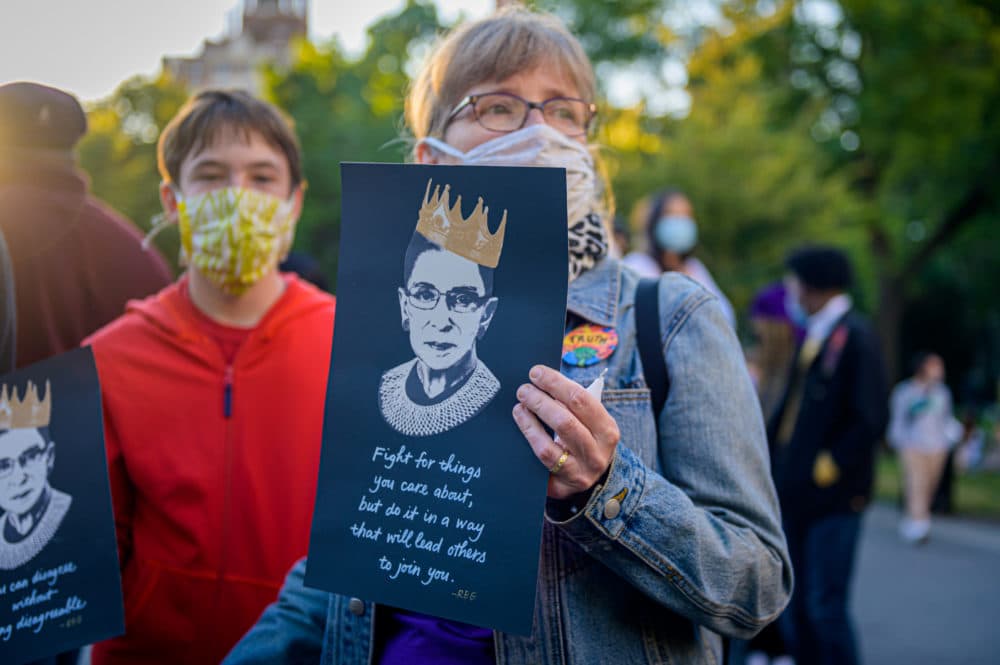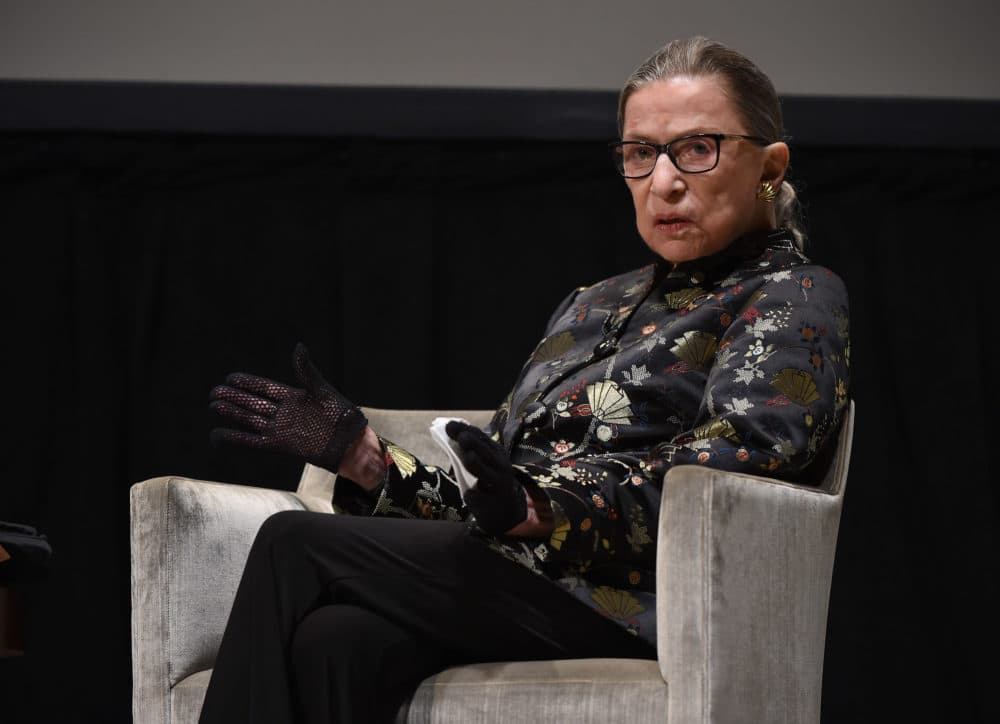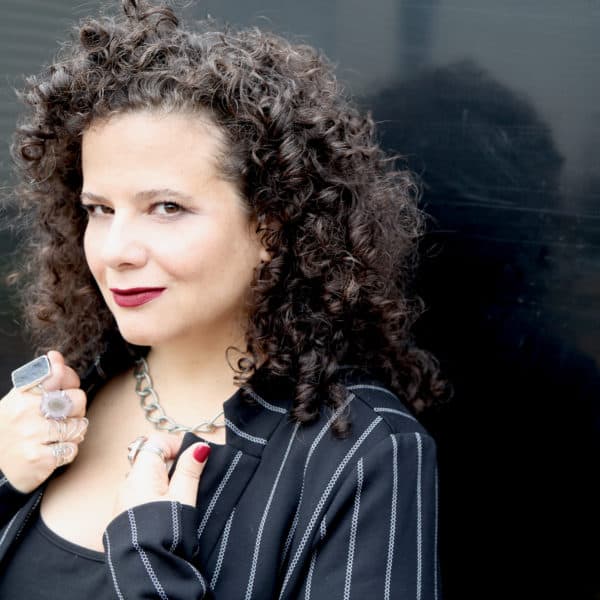Advertisement
Commentary
RBG Didn't Do It For Notoriety. She Wanted People Like Me To Be Free
Resume
I was born in November 1971, just days before the U.S. Supreme Court unanimously ruled — for the first time — that the 14th Amendment bans discrimination on the basis of gender. The case was Reed v. Reed, and a young lawyer named Ruth Bader Ginsburg co-wrote the brief that formed the basis of the winning case.
She, of course, did not stop there. While I was learning to walk, learning to read, learning what was and what wasn’t safe to put in my mouth, she was pursuing a groundbreaking string of lawsuits, methodically enshrining in the nation’s jurisprudence a robust right to freedom from discrimination on the basis of gender. Her early work radically expanded not just the possibilities for my career as a feminist activist and writer, but for my very life as a woman.
I didn’t learn any of this until much later, when her ferocious dissents — and the humor and hard work of admirers like Aminatou Sow, Irin Carmon and Shana Knizhnik — made her a folk hero. And while Ginsburg clearly had fun with her late-in-life elevation to cultural icon, I suspect she’d also have been OK with me not knowing. She didn’t do all this so I would know her name. She did it so I would be free.
Now I fear that the dissents that made her legendary will overshadow her full legacy. Because Justice Ginsburg’s true gift was not in arguing against an unjust majority --- that was merely one expression of her power. What Ginsburg embodied every day of her life was a steadfast yet electrifying refusal to accept the unacceptable.
I can’t bear this grief. I can’t believe she’s gone. I can’t believe how much pressure we asked this one woman in her late-80s to endure for us.
Born into a world in which being Jewish and a woman was even more of a double burden than it is today, she never accepted unjust barriers for herself or anyone else. Not when firms refused to hire her, even though she was more qualified than most of the men they were happy to say “yes” to. And not when Supreme Court Justice Felix Frankfurter said, outright, that he wouldn’t offer her a clerkship because of her gender. Ginsburg kept hustling until she found a post worthy of her talent. Nor was she deterred when she learned that the smart strategy to use the Equal Protection Clause of the 14th Amendment to argue against sex discrimination, pioneered by Pauli Murray and Dorothy Kenyon, had been tried and failed. She just picked it up and kept developing it.
Her famous dissents were just another way to say: I do not accept this as just, and I will do everything in my power to make it right.
When I heard the news of her death, I was in my kitchen, preparing tzimmes for a socially-distanced Rosh Hashanah celebration with friends. (Yes, a fully observant Jew wouldn’t be cooking on Friday night, so sue me.) I felt the blood fall out of my face. I zombie-walked into my living room so I could sit down. Then I said, out loud to no one, “I can’t.”

Meaning: I can’t bear this grief. I can’t believe she’s gone. I can’t believe how much pressure we asked this one woman in her late-80s to endure for us. I can’t stand what I know the GOP will now try to do. I can’t tolerate being confronted with how fragile our rights still are. I can’t fight harder than I already am. I can’t deal with any of this.
These last few years under the increasingly authoritarian Trump regime have worn me down in ways I didn’t know were possible. The news of just this last week, even before Justice Ginsburg died, was too much to bear: mass forced sterilizations of refugees and immigrants. Yet another woman coming forward to say the sitting president had sexually assaulted her. A new “patriotic education” initiative to indoctrinate schoolchildren, a la Hitler Youth. A plan to let millions more Americans — disproportionally Black and brown Americans — die of COVID-19 in pursuit of herd immunity. Fires burning up and down the West Coast and a devastating hurricane in the South.
I'm a lifelong activist. My work popularized the standard of affirmative consent. I took on Facebook over their inaction on dangerous content long before it was cool — and won. Last year I got arrested trying to shut down ICE. I am usually the first one to the barricades. That's why I’m ashamed to admit how much of the time I spend lately feeling paralyzed, demoralized and resigned. How much of the unacceptable I have begun to let wash over me. Hope is vulnerable, and requires action; being vulnerable, while taking action, takes energy. And I am so, so tired.
We are all Ruth Bader Ginsburg now. We have to be. May her memory be for revolution.
Ruth Bader Ginsburg would never have tolerated such an attitude. She was tired a lot. When her husband, Marty, was diagnosed with testicular cancer while they were both at Harvard Law School, she cared for him and their young daughter, and still became the first woman to ever make the school’s esteemed Law Review. In her 27-year tenure on the Court, she battled cancer five times. In 2010, she lost her beloved Marty. And until 2019, she never missed a single day on the bench.
When someone dies, Jews often say “may her memory be for blessing,” meaning that when we say “may you be like her,” it is a great calling. In recent years, when someone has been unjustly killed, or a person who has been a great fighter for justice has died, some of us have begun to say instead, “may her memory be for revolution.” Meaning, may the loss of this person spur us to revolutionary action.
So while I am confessing to you that my first thought was “I can’t,” while I am still heartbroken and exhausted beyond words, I am intending to live by my second thought. Which was: we are all called to be Ruth Bader Ginsburg now. We have to be. May her memory be for revolution.
This segment aired on September 25, 2020.
